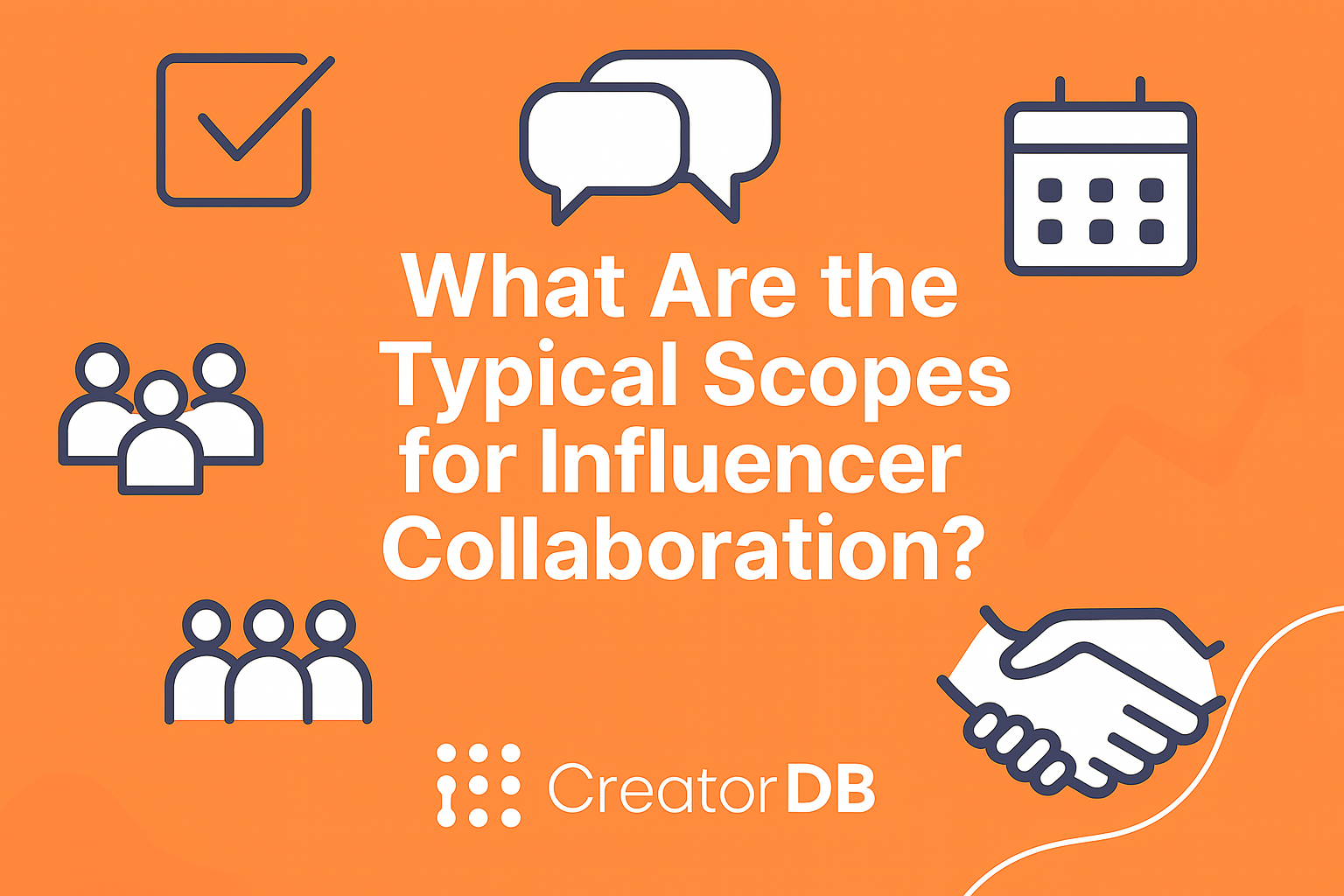Influencer marketing is not the new kid on the block anymore. However, its regulation can still be very murky and greatly varies from country to country. To help you navigate these difficult waters, we at CreatorDB compiled an easy-to-follow guide to avoid any troubles with the law when creating an influencer marketing campaign. Here are the influencer regulations in Asia.
This article is part of our series on influencer marketing regulations. You can find our other here:
- The international guide to influencer marketing regulations
- Influencer regulation in English-speaking countries
- Influencer regulation in the EU
- Influencer regulation in Latin America
Taiwan
For the longest period, Taiwanese influencers had the duty to disclose any special relationship with advertisers or brands. If they had any connection, payment, sample products, or other deals that would have been inaccessible to a normal customer, they needed to disclose it. They could have been fined by the Taiwan Fair Trade Commission (TFTC) for false or misleading representations of goods or services.
On March 2023, the FTC amended the Fair Trade Act, and with it implemented some of the most stringent influencer regulations in Asia, now influencers or internet personalities that promote products or services online will be considered on the same level as sellers, making them liable for joint compensation with the supplier if making false claims or fraudulent advertising.
While still requiring influencers to disclose their connections, as most countries do, the TFTC is taking a tough line toward influencers regarding what they are liable for. Influencer deals are regulated with the same framework as other digital marketing avenues. The medium, the influencer, is liable for the information spread as the company that produces and distributes a product or service.
Japan
In Japan, the legal debate about influencer regulations is just starting: the Consumer Affairs Agency (CAA) is looking into regulating stealth marketing, which has been allowed and unregulated. While there are laws and regulations for misleading and deceptive marketing is completely fine to use comments disguised as third parties to promote one’s products. This means that influencers don’t have to disclose if a post is sponsored, something that 40% of Japanese influencers have been asked for.
But the CAA is changing these practices, and under the new regulations, advertisers who still employ stealth marketing would face up to two years of imprisonment. In the meantime, if you want to be a hundred percent sure to be in the right position, you can ask your influencers to use the hashtag #PR.
South Korea
In 2020 the Korea Fair Trade Commission (KFTC) amended the Guidelines on Review of Labeling and Advertising Regarding Recommendations and Endorsements, introducing a regulatory framework for influencer regulations regarding sponsored content. The guidelines not only specify that a sponsorship disclosure should be placed for any sponsored post but also that it should be placed near the content in a manner that will be readily noticeable to consumers.
The disclosure should be in the image or the caption’s first paragraph on photo-sharing platforms like Instagram.
Regarding video content, the disclosure should be in the title or at the beginning or end of the video. But should also be repeated throughout the video to make it evident to those who may only watch it in a clip form.
Curiously for Asian influencer marketing regulations the KFTC has a more lenient approach to “well-known personalities” videos and livestreamed content for whom there is no necessity to repeat the disclosure during the body of the content but only in the beginning or the end.
These guidelines also apply to all the content published before 2020, forcing the content creators to go back through their catalog and edit each sponsored post.
India
The Indian government introduced influencer regulation about sponsorships in January 2023. Under this new legislation, disclosing if there has been any compensation for a post or piece of content is mandatory. Such disclosure should be included in the caption for image-based content while being in audio and video format it comes to video content. First-time offenders could be fined up to $12.000 and repeated offenders up to $61.000. To be able to enforce such measures, the Indian government is in talks with tech companies to deploy crawling algorithms that would catch any infraction.

The Philippines
The Philippines do not have a regulatory framework for influencer marketing, and the only guidelines are established by the Ads Standards Council (ASC). As many other countries in Asia influencer regulations are left to the self-governing body that already establishes procedures for any other form of advertisement. As of now, there are no regulations that make it mandatory to disclose influencers’ sponsorships.
Vietnam
Vietnam is one of the countries that doesn’t have influencers regulation in Asia about disclosure. Because of this, customers have often been targeted by fraudulent and misleading ads, especially regarding financial platforms and beauty products. Nonetheless, Vietnamese youth’s trust in influencers is growing and already places them as more trusted than traditional media sources.
Thailand
Thailand doesn’t have set rules for influencer marketing or digital marketing in general, but if an ad is liable for causing harm, the advertiser could be charged with a criminal offense under the Computer-related Crime Act.
Singapore
The Advertising Standards Authority of Singapore (ASAS) established guidelines for sponsored content in 2016: influencers must clearly and directly disclose their sponsored content, which should be easily visible. While the ASAS does not have enforcement powers and the regulation are not binding laws, violating their rule may translate into advertisement time or space withheld from the offending advertising agency. In repeated and particularly egregious cases, ASAS may publicly shame the transgressor.
Malaysia
Malaysia’s online advertising is regulated by the Communication and Multimedia Content Forum of Malaysia (CMA). While participation in the agency is voluntary, it can impose fines and penalties for the transgressions of its rulings. In 2022, it updated its regulations regarding influencer marketing. Now, any partnership between a brand and influencers must be clearly disclosed. This also applies to virtual influencers.
Indonesia
Indonesia does not have influencer regulations about sponsorship disclosures.





